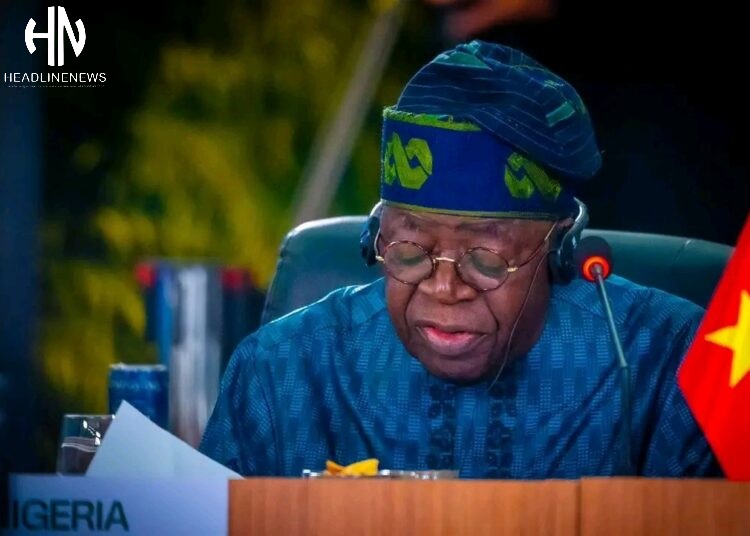At the 17th BRICS Summit in Rio de Janeiro, President Bola Ahmed Tinubu delivered a powerful call for climate equity, arguing that Africa deserves fair treatment in global climate negotiations given its minimal contribution to greenhouse gas emissions compared to its disproportionate suffering from climate impacts.
Speaking to fellow leaders in Brazil, Tinubu emphasized that the current global system fails to adequately include low-income and emerging economies, particularly African nations, in critical decision-making processes.
“Africa has contributed the least to global emissions but suffers the most,” Tinubu declared. “We need a new path of justice, anchored in fairness, sustainable technology transfer, and accessible financing so that emerging economies can fully benefit from various initiatives.”

Nigeria’s New Role in BRICS
Tinubu’s address came as Nigeria settles into its role as a BRICS partner country, having officially joined the bloc in January 2025. Nigeria was among nine nations—including Belarus, Bolivia, Cuba, Kazakhstan, Malaysia, Thailand, Uganda, and Uzbekistan—admitted during this expansion following the group’s 16th Summit in Kazan last October.
Invited by Brazilian President Luiz Inácio Lula da Silva, Tinubu used the platform to advocate for Africa’s stronger voice in global affairs, particularly regarding climate action and healthcare equity.

Call for Systematic Change
The Nigerian president argued for comprehensive reforms across multiple sectors, stating: “The next issues are financial restructuring and reevaluation of the global structure.”
He emphasized that African nations cannot remain “passive participants in global decision-making on financial restructuring, debt forgiveness, climate change, environmental issues, and healthcare.”
Instead, Tinubu positioned Nigeria and other emerging economies as future “architects” who must shape policies addressing the needs of young populations. He noted that youth represent 70 percent of Nigeria’s population.

Environmental Leadership and Vision 2050
Tinubu highlighted Nigeria’s environmental initiatives, citing the country’s leadership in the African Carbon Market Initiative and participation in the Great Green Wall project. He positioned the upcoming COP-30 climate summit as a critical opportunity to align global strategies for environmental sustainability.
According to his Special Adviser on Information and Strategy, Bayo Onanuga, Tinubu outlined Nigeria’s Vision 2050 plan, which advances renewable energy, nature-based solutions, urban resilience, and universal health coverage.

Beyond Economics: Health and Solidarity
Addressing global health challenges, Tinubu called for collective action against the rising burden of non-communicable diseases. He envisioned transforming BRICS from merely an economic bloc into a broader platform for solutions.
“As we approach COP-30 and look to strengthen the global health system, we believe the BRICS must not only be a bloc for emerging economies but also a beacon for emerging solutions,” he said.
Tinubu concluded by reaffirming Nigeria’s commitment to “strategic collaboration that translates into sustainable and inclusive development for all,” emphasizing principles of “solidarity, self-reliance, sustainability, and shared prosperity.”




